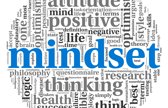

Is growth mindset training a waste of time ? Growth Mindset - Mindset Scholars Network. When students hold a fixed mindset, school can be a threatening place When students believe that intelligence is something you either have or you don’t have, their main goal in school is to show how smart they are—or hide that they’re not smart. Therefore, they tend to value getting the best grades over learning. This can make school a stressful experience. Figure 1. Students holding a growth mindset were far more likely to score in the top 20% on a nationwide achievement test Similarly, these students view effort and struggle negatively. In contrast, students with a growth mindset experience school as an exciting place to learn and grow When students believe intelligence is something that can be developed, they value learning and mastery.
Similarly, students with a growth mindset view effort and struggle more positively. Students’ differing interpretations of school and learning lead to differences in performance. Is growth mindset bollocks? Like everyone else, when I first came across Carol Dweck’s theory of growth mindsets I was pretty psyched.
There was something satisfyingly truthy about that labels like fixed and growth mindset could explain why children failed or succeeded at school. I wanted to believe that something as simple as telling children their brains are ‘like a muscle’ and showing them a cartoon about synapses forming could make them cleverer. And if praising effort instead of praising intelligence really did make all this happen, then why the hell wouldn’t we? And best of all, the whole edifice was established on rock-solid, credible research and supported by an impeccable evidence base.
The thing is, when something seems to good to be true it often turns out not to be true. Here’s a list of the increasingly sceptical posts I’ve written over the last year or so: 20 psychological principles for teachers #1 Mindsets May 2015 But what if a student is trying as hard as they are able? You decide. Like this: Interactive Quiz: Fixed vs Growth Mindsets. According to recent research by Carol Dweck, there are two types of students.
Both types may show a lot of promise at first, but only one of the types typically goes on to achieve impressive results in their lives. The other type tends to achieve less and less over time. What are these two types of students? Those with a fixed mindset, and those with a growth mindset. Students with a fixed mindset struggle more as time goes on, held back by anxiety and stress. Meanwhile, students with a growth mindset flourish even when challenge increases. "You’re in charge of your mind. As a result, according to Dweck's findings, students with growth mindsets are able to achieve results up to 3 times better than students with fixed mindsets. Discovering what type of mindset you have could be the most important thing you do today.
Take the interactive test below to get started. 1. 2. 3. 4. 5. 6. 7. 8. Your Results FixedGrowth You May Have a Fixed Mindset However, newer research is much more encouraging. The Relationship of Growth Mindset and Goal setting in a First ye. The Growth Mindset - What is Growth Mindset - Mindset Works. Over 30 years ago, Carol Dweck and her colleagues became interested in students' attitudes about failure. They noticed that some students rebounded while other students seemed devastated by even the smallest setbacks. After studying the behavior of thousands of children, Dr.
Dweck coined the terms fixed mindset and growth mindset to describe the underlying beliefs people have about learning and intelligence. When students believe they can get smarter, they understand that effort makes them stronger. Recent advances in neuroscience have shown us that the brain is far more malleable than we ever knew. At the same time that these neuroscientific discoveries were gaining traction, researchers began to understand the link between mindsets and achievement. What does growth mindset teaching look like in the real world?
Changer d’état d’esprit : Une nouvelle psychologie de la réussite. Temps de lecture estimé : 5 minutes Pensez-vous que votre intelligence et que vos talents sont innés ? Ou bien, vous pensez qu’il est possible de s’améliorer et de changer grâce à la pratique ? Dans Mindset, Carol Dweck, professeur de psychologie à l’Université de Stanford, nous montre que les capacités et le talent ne suffisent pas pour atteindre nos objectifs, mais que l’état d’esprit joue un rôle essentiel dans toute volonté de réaliser son plein potentiel. Le plus important pour relever et réussir des défis est de les aborder avec un état d’esprit de développement. Notre état d’esprit détermine si nous croyons pouvoir évoluer Votre naissance, vos parents, votre sexe, votre prénom, votre nationalité, votre langue, votre famille, votre physique, la couleur de vos yeux. Mais lorsqu’il s’agit de ses capacités intellectuelles et physiques, vous avez le pouvoir d’exceller, d’apprendre et de progresser.
Pour Dweck, le monde est divisé en deux catégories. . — James Cameron. Mindsets: Fixed Versus Growth. 28 Ways to Incorporate a Growth Mindset Concept in the Classroom. Resources for Teaching Growth Mindset. Teaching a Growth Mindset - Carol Dweck. Symonette.makeassessmentwork.dweck. Mindset Kit | Resources for growth and learning mindsets.